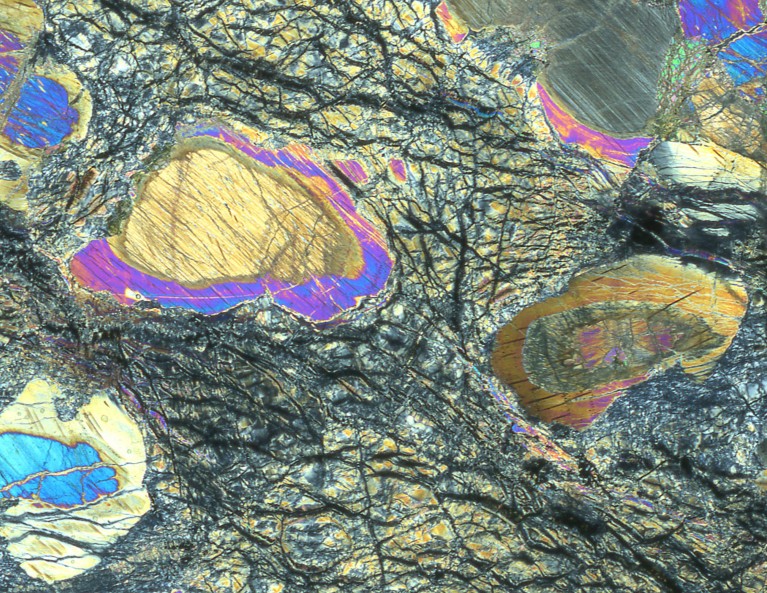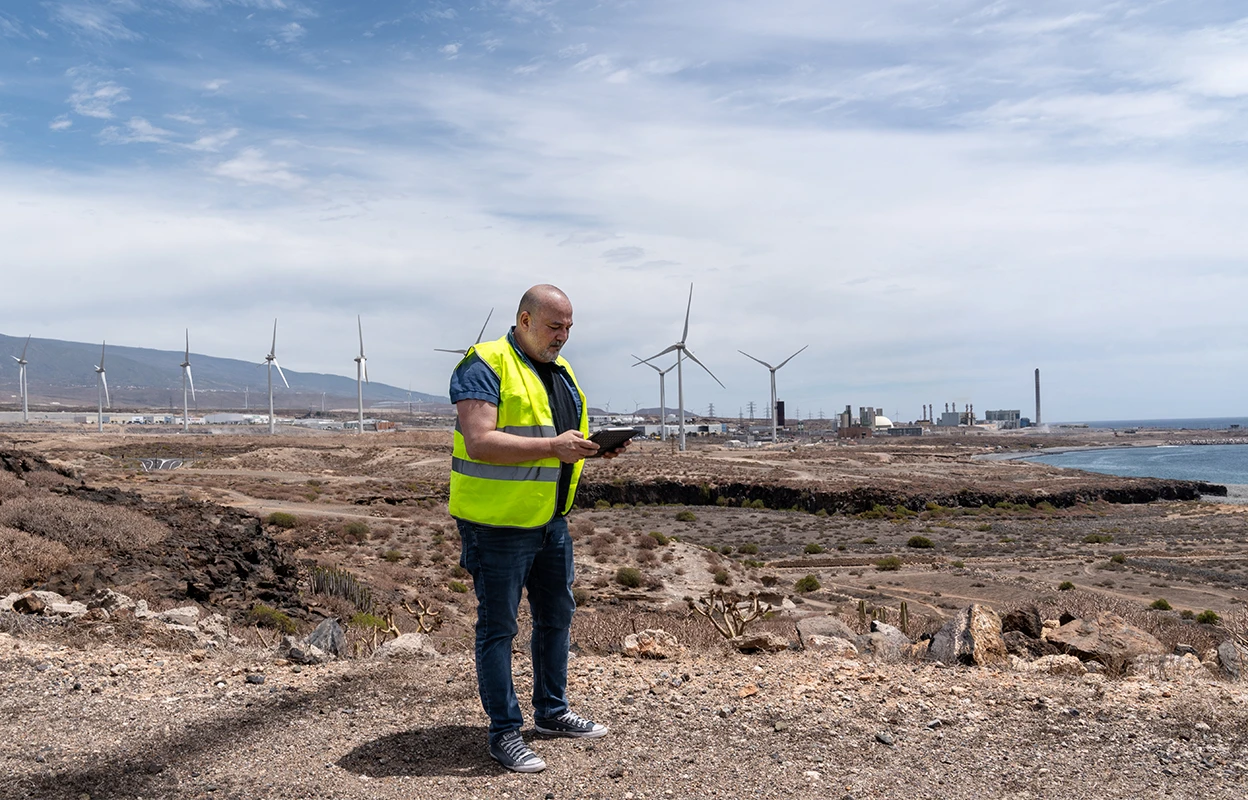"Deepest-ever samples from Earth's mantle."
Views expressed in this science and technology update are those of the reporters and correspondents. Accessed on 13 August 2024, 1402 UTC.
Content and Source: https://www.nature.com.
Please check link or scroll down to read your selections. Thanks for joining us today.
Russ Roberts (https://hawaiisciencejournal.blogspot.com).
| |||||
| |||||
Hello Nature readers, | |||||
 | |||||
| Mantle rock was found to be interspersed with other types of rock in sample cores, suggesting that the mantle–crust boundary is not as sharp as seismographic data normally suggest. (Johan Lissenberg) | |||||
Deepest-ever samples from Earth’s mantleResearchers extracted an almost uninterrupted 1,268-metre long sample of rock from a region where Earth’s mantle — the thick, interior layer that makes up more than 80% of the planet’s bulk — has pushed up through the Earth’s crust. The oceanic crust is an ideal place to puncture, because it’s much thinner and younger in places than the crust on dry land, thanks to the movements of tectonic plates. But a follow-up study might be a long time coming: the United States is retiring JOIDES Resolution, the workhorse research ship that scientists used to do the work. Nature | 5 min readReference: Science paper | |||||
Superconductivity still reels from scandalThe high-pressure superconductor field is still recovering from a scandal in which physicist Ranga Dias claimed to have discovered room-temperature superconductors, but then was found by his employer to have committed extensive scientific misconduct. Now there are fresh concerns, this time about results from the laboratory of physicist Mikhail Eremets at the Max Planck Institute for Chemistry in Germany. In 2015, Eremets announced a stunning discovery that the compound hydrogen sulfide is superconducting up to 203 kelvin (–70 °C) — positively balmy compared to the unimaginably cold temperatures at which most other materials superconduct. But a dust-up over the data in a 2022 paper by Eremets and his colleagues raises an existential question about how science should be conducted in a community already in turmoil. Nature | 7 min readReference: Nature Communications paper (from 2022) | |||||
Blood test uses ‘protein clock’An age ‘clock’ based on some 200 proteins found in the blood can predict a person’s risk of developing 18 chronic illnesses, including heart disease, cancer, diabetes and Alzheimer’s disease. | |||||
Read this, then clean your microwaveYour microwave oven probably has its own microbiome — challenging the common misconception that microwaves make food safe by wiping out bacteria. Microbiologists swabbed 30 microwave ovens, and discovered 101 bacterial strains. Most were bacteria found on human skin, but some were associated with food-borne illnesses. In laboratory microwave ovens, researchers found ‘extremophiles’ that can withstand high radiation and high temperatures. The team suggests that these strains might have been ‘selected’ evolutionarily by surviving repeated rounds of radiation, and could turn out to be useful — for the bioremediation of toxic waste, for example. Nature | 4 min readReference: Frontiers in Microbiology paper | |||||
| |||||
Time to axe ‘zombie’ wildlife conventionsA moratorium implemented by the International Whaling Commission (IWC) has stopped almost all commercial whaling since 1985 — a groundbreaking achievement that saved species from extinction. But the convention has outlived its usefulness, argue former IWC chair Peter Bridgewater and three other researchers. “IWC meetings since have been a source of acrimonious and fruitless dialogue among member nations,” they write. “By exiting with dignity, the IWC would set a powerful example for the international environmental community.” Nature | 9 min read | |||||
Diversity, one qubit at a timeA raft of initiatives is rising to the challenge of drawing more scientists from under-represented groups to quantum computing. “What I find really exciting about emerging technologies like quantum computing is we have the chance to get things right early on,” says Kiera Peltz of Qubit by Qubit, which aims to make quantum-computing education more accessible. “Quantum computing will most certainly impact society, and I think that makes it even more critical to have diverse voices and experiences shaping these technologies.” Nature | 7 min read | |||||
| |||||
 | |||||
| “Keeping an eye on turbines is crucial, particularly on an island as windy and tropical as Tenerife,” says Guillermo Galván García, the coordinator of the Spanish island’s wind energy department. “There’s a lot of humidity and salt from the sea, as well as sand from the Sahara Desert.” He and his team have installed 28 wind turbines on the site in this photo — but the focus should not just be on building more, he says. “Renewable energies should be seen as a tool, but they’re not the only answer to society’s energy problems,” he notes. “The cleanest energy of all is that which we don’t consume.” (Nature | 3 min read) | |||||
| |||||
| |||||
You received this newsletter because you subscribed with the email address: kh6jrm@gmail.com Please add briefing@nature.com to your address book. Enjoying this newsletter? You can use this form to recommend it to a friend or colleague — thank you! Had enough? To unsubscribe from this Briefing, but keep receiving your other Nature Briefing newsletters, please update your subscription preferences. To stop all Nature Briefing emails forever, click here to remove your personal data from our system. Fancy a bit of a read? View our privacy policy. Forwarded by a friend? Get the Briefing straight to your inbox: subscribe for free. Want to master time management, protect your mental health and brush up on your skills? Sign up for our free short e-mail series for working scientists, Back to the lab. Get more from Nature: Register for free on nature.com to sign up for other newsletters specific to your field and email alerts from Nature Portfolio journals. Would you like to read the Briefing in other languages? 关注Nature Portfolio官方微信订阅号,每周二为您推送Nature Briefing精选中文内容——自然每周简报。 Nature Portfolio | The Springer Nature Campus, 4 Crinan Street, London, N1 9XW, United Kingdom Nature Portfolio, part of Springer Nature. |



No comments:
Post a Comment
Welcome to "Hawaii Science Journal". Here you'll find the latest stories from science, technology, medicine, and the environment.